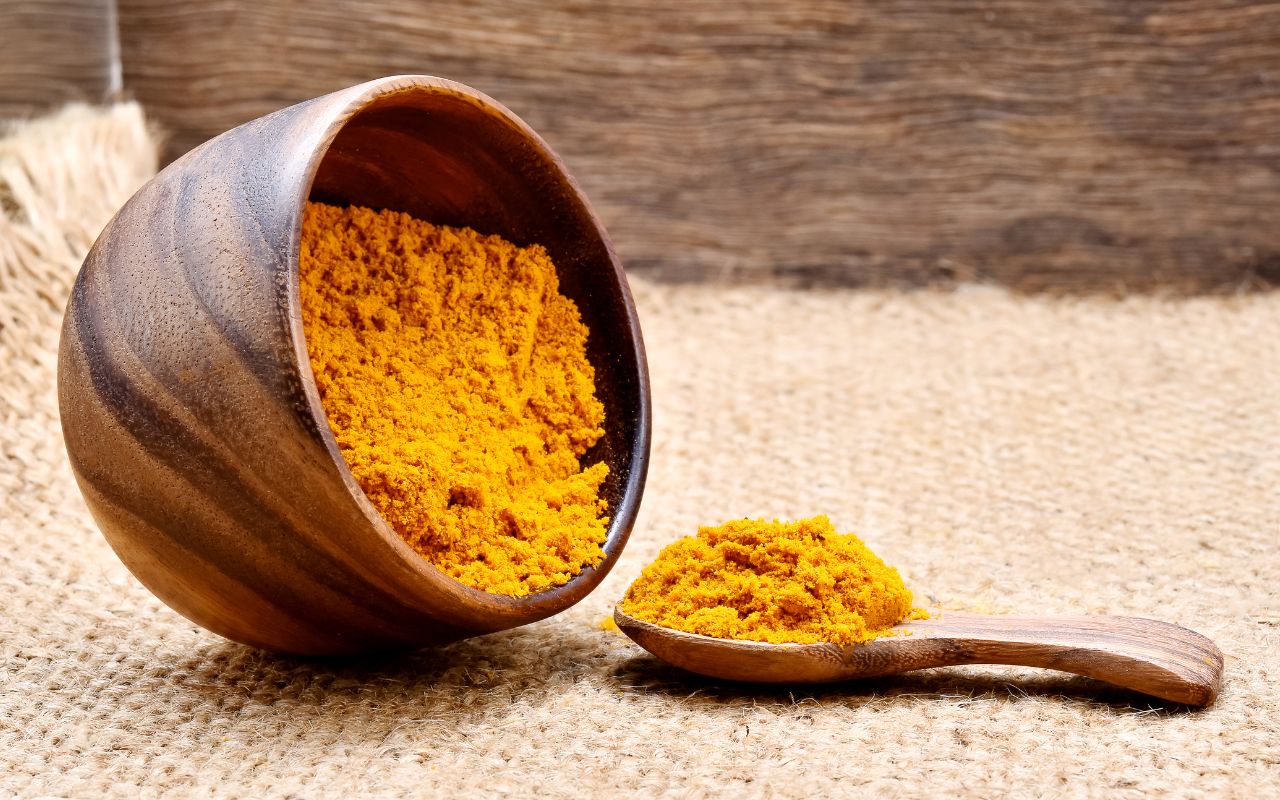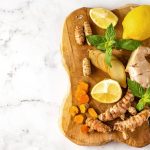Many people rely on nonsteroidal anti-inflammatory drugs (NSAIDs) to manage pain and inflammation. However, these medications can come with a host of unwanted side effects, particularly affecting the gastrointestinal system. Fortunately, there are natural alternatives that offer comparable relief without these drawbacks. This article explores several effective natural remedies, including white willow bark, tart cherries, ginger, curcumin, boswellia, and fish oil.
Understanding NSAIDs and Their Drawbacks
NSAIDs inhibit the synthesis of prostaglandins, inflammatory molecules that play a key role in the pain and inflammation pathways. While effective, NSAIDs can lead to significant side effects such as gastrointestinal distress, increased blood pressure, and even cardiovascular risks when used long-term. These concerns have spurred interest in natural alternatives that offer similar benefits without such adverse effects.
White Willow Bark: Nature's Aspirin
White willow bark has been used for centuries to treat pain and inflammation. The active compound in white willow bark, salicin, is chemically similar to aspirin. It reduces the production of inflammatory chemicals in the body, relieving conditions like arthritis and back pain.
A study published in the International Journal of Molecular Sciences underscored the efficacy of white willow bark in targeting peripheral inflammation (Antoniadou et al., 2021). By inhibiting the activity of specific enzymes, white willow bark can effectively reduce inflammation and provide pain relief. This natural remedy offers a viable alternative to traditional NSAIDs, particularly for individuals seeking to avoid gastrointestinal side effects.
Read more about white willow bark.
Tart Cherries: A Sweet Solution to Pain
Tart cherries are another natural remedy that has garnered attention for their anti-inflammatory and pain-relieving properties. Montmorency tart cherries, in particular, are rich in anthocyanins, which have been shown to reduce oxidative stress and inflammation.
Research published in the European Journal of Sport Science highlighted the benefits of tart cherry supplementation in accelerating recovery from exercise-induced muscle damage, particularly in females (Brown et al., 2019). This makes tart cherries an excellent option for athletes and individuals with active lifestyles who experience frequent muscle pain and inflammation.
Tart cherries can be consumed fresh, in juice, or as supplements, making them a versatile and tasty addition to one's diet for combating inflammation naturally.
Ginger: Zesty Relief for Inflammation
Ginger, a staple in many culinary traditions, also boasts potent anti-inflammatory properties. The active compounds in ginger, known as gingerols and shogaols, inhibit the production of pro-inflammatory molecules, offering relief from conditions like rheumatoid arthritis and osteoarthritis.
A systematic review published in Food Science & Nutrition emphasized ginger's effectiveness in managing gastrointestinal disorders and inflammation (Bodagh et al., 2018). Additionally, a study in the journal Gene found that ginger supplementation could positively impact immune and inflammation-related gene expression in patients with active rheumatoid arthritis (Aryaeian et al., 2019).
Integrating ginger into your diet can be as simple as adding fresh ginger to meals, brewing ginger tea, or taking ginger supplements. Its versatility and powerful anti-inflammatory effects make ginger a valuable addition to a natural pain management regimen.
Curcumin: The Golden Spice for Joint Health
Curcumin, the active compound in turmeric, is renowned for its anti-inflammatory and antioxidant properties. Curcumin works by inhibiting various molecules contributing to inflammation, making it particularly effective for arthritis and inflammatory bowel disease.
According to a 2018 review, curcumin has shown promise in managing a range of chronic illnesses, including metabolic and premenstrual syndrome (Medical News Today, 2021). Its ability to modulate inflammatory pathways without the side effects associated with NSAIDs makes it a powerful natural alternative.
Curcumin can be consumed through turmeric-rich dishes, teas, or supplements. Combining curcumin with black pepper, which contains piperine, can enhance its bioavailability and effectiveness.
Learn more about curcumin's benefits.
Boswellia: An Ancient Remedy for Modern Ailments
Boswellia, also known as Indian frankincense, has been used in traditional medicine for centuries to treat inflammatory conditions. The active compounds in boswellia, called boswellic acids, have been shown to inhibit pro-inflammatory enzymes, relieving conditions like osteoarthritis and inflammatory bowel disease.
Clinical studies have demonstrated the efficacy of boswellia in reducing pain and improving joint function. Its anti-inflammatory properties make it a suitable alternative for those looking to manage chronic pain without relying on NSAIDs.
Boswellia is available in various forms, including capsules, tablets, and topical creams. Incorporating this ancient remedy into your routine can significantly relieve inflammation and pain.
Fish Oil: Nature’s Anti-Inflammatory Elixir
Fish oil, rich in omega-3 fatty acids, is another powerful natural remedy for inflammation. Omega-3s reduce the production of inflammatory cytokines and eicosanoids, offering relief from conditions like arthritis and cardiovascular diseases.
Studies have shown that regular consumption of fish oil supplements can significantly reduce inflammation and improve joint health. Omega-3 fatty acids also benefit heart health, making fish oil a valuable addition to a comprehensive health regimen.
Fish oil supplements are widely available and easily incorporated into daily routines. Additionally, increasing the intake of fatty fish like salmon, mackerel, and sardines can help boost omega-3 levels naturally.
Complementary and Alternative Therapies for Inflammation
In addition to the natural remedies mentioned above, several complementary and alternative therapies can help manage inflammation and pain. Practices like yoga, t’ai chi, and hydrotherapy have shown promise in improving joint function and reducing pain.
A systematic review of trials using t’ai chi for rheumatoid arthritis patients indicated improvements in disability, mood, and vitality, although the pain and functional assessment results were mixed (Hopkins Arthritis Center, 2008). In various studies, Yoga has also significantly improved grip strength and overall joint function.
Hydrotherapy, involving warm water exercises, can relieve pain and improve mobility for individuals with arthritis. While more research is needed to determine the benefits of these therapies conclusively, they offer promising avenues for managing pain and inflammation naturally.
Explore more about alternative therapies for inflammation.
Diet and Lifestyle Changes for Reducing Inflammation
Adopting an anti-inflammatory diet is one of the most effective ways to reduce inflammation naturally. Diets high in refined sugars, processed foods, and saturated fats have been linked to increased inflammation. Conversely, more fruits, vegetables, nuts, seeds, and whole grains can help reduce inflammation.
Certain foods, like fatty fish, leafy greens, and berries, are particularly beneficial due to their high antioxidant and nutrient content. Spices like turmeric and ginger can also be added to meals for their anti-inflammatory properties.
Regular exercise is another crucial factor in managing inflammation. Physical activity helps maintain a moderate weight, improves mental health, and reduces the levels of inflammatory chemicals in the body. Even 20 minutes of moderate exercise daily can significantly reduce inflammation (Medical News Today, 2021).
Stress management is also vital, as chronic stress can exacerbate inflammation. Practices like mindfulness, meditation, and relaxing activities can help reduce stress levels and improve overall health.
Getting adequate sleep and addressing sleep disturbances can further help in managing inflammation. Establishing a regular sleep schedule and creating a conducive sleep environment are essential for better sleep.
Conclusion
Natural alternatives to NSAIDs provide effective relief from pain and inflammation without the adverse side effects associated with traditional medications. Remedies such as white willow bark, tart cherries, ginger, curcumin, boswellia, and fish oil offer powerful anti-inflammatory benefits. Additionally, adopting an anti-inflammatory diet, incorporating regular exercise, and managing stress can further aid in reducing inflammation naturally.
While natural remedies can be highly effective, consulting with a healthcare professional before starting any new supplement or therapy is essential, especially for individuals with existing health conditions or those taking other medications. By exploring and integrating these natural alternatives, individuals can manage their pain and inflammation holistically and healthily.









